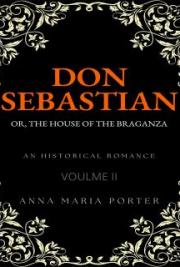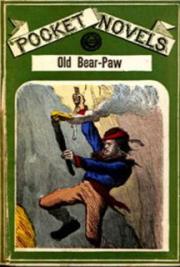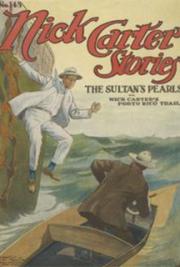CHARACTERS
Certain critics ask the following question about the play: do the characters interest the audience poetically or psychologically? Shakespeare would probably have laughed at such a question, for the answer is both. The language of the characters – Romeo, Juliet, Mercutio, Friar Laurence – is poetical, rich, and beautiful. Yet audiences become engaged in these characters (specifically Romeo and Juliet) because there is a deep and compelling psychological richness in them as well. Shakespeare was a keen observer into the motives of man, and he frequently marveled over how deep and powerful emotions affected and changed people and caused them to act in bewildering and stunning ways. Love, as most Renaissance poets attest, is or can be one of the most powerful emotions extant; and that emotion has both motivated and encouraged individuals to act in a positive manner and has also compelled people to act in foolish and even destructive ways. When a person is truly possessed by love, all reason and clarity vanish from that individual’s thought processes.
Drama is representational, and Romeo’s earlier infatuation for Rosaline is not in any way intended to establish some sort of pattern in the young man’s character. Many young men make the mistake and assume that infatuation is love because they have never experienced true love before. They just do not know any better. Clearly, Romeo’s feelings for Juliet are of an entirely different nature than those earlier feelings for Rosaline. Despite his wild and impetuous actions, Romeo has matured as a lover. His feelings for Juliet are those of true love, and he could never easily abandon Juliet as he had done with Rosaline. He would rather die first. Friar Laurence ridicules and mocks Romeo when he finds out that Romeo has, overnight, stopped thinking of Rosaline and now has only thoughts for Juliet. However, the Friar’s viewpoint does not represent Shakespeare’s own thoughts on the topic. Audiences and especially readers should keep in mind that the good Friar is a member of the Catholic Church: he has taken a vow of chastity. Thus, his own experiences with love are minimal or perhaps even nonexistent. He does not really know or understand the differences between love and infatuation any more than Romeo had before he had met Juliet. In other of his plays (see, for example, Act II, Scene 4, of As You Like It) Shakespeare also notes how older adults have either forgotten what the experience of being truly in love is like or have never really experienced such a deep and intense relationship ever in their lives. Not all people are so fortunate; and, during the Renaissance, marriage was often made for reasons other than love.
The character of Friar Laurence, though, is an intriguing and rich one. Although at times he is (two-dimensionally) the voice of reason, he is at other times something more. His decision to scheme against the Capulets and their plans to have Juliet marry Paris involves, to a minor extent, his fear in having participated in an unsanctioned marriage ceremony between Romeo and Juliet. Yet, the Friar is also a caring and trustworthy friend and confidant to Romeo who genuinely wishes to help the young couple despite the fact that he is unable to understand the extent of their emotions. Juliet also surpasses the two-dimensional stiffness of her character that appeared in earlier versions of the story. Like Romeo, the character of Juliet is dynamic: her character changes. Juliet is a passive and obedient daughter, but the power of love changes all that. During the Renaissance, daughters were forced to be obedient to the wills of their fathers. Juliet surprises even herself in her obstinacy toward her parents and their decisions for her. And Juliet is a clever girl (just as Romeo is a witty and clever young man). Her complaint against the slowness of time (in Act II) reveals a clever command of language, and her ability to ascertain and understand the viewpoints of her Nurse (in Act III) as being contrary to her own also reveals intelligence and a growth in her character.
Juliet forgoes her own friend and confidant, the Nurse: Juliet has outgrown her.
The clever and witty Mercutio is a figure that has long intrigued audiences. Although he dies early in the play, his role is a memorable one. He does play an important role in the plot: his death leads to the slaying of Tybalt and the banishment of Romeo, and those actions ultimately lead to the deaths of Romeo and Juliet at the end of the play. One action leads to the next: every character and every action is just another piece of the puzzle that is being built by Fate.
Mercutio, though, is also a fitting companion and counterpart to Romeo. Where Benvolio, Romeo’s cousin, is reasonable and coolheaded, Mercutio is emotional and hot-blooded. Audiences perceive Romeo’s own cleverness and wit through his dialogue with Mercutio, and Mercutio enhances and perpetuates those characteristics as no other character in the play could. Mercutio symbolizes emotion and imagination and wit and humor. Yet, in symbolizing all of these qualities, he becomes more than just a symbol. Of course, the witty speech on Queen Mab (Act I, Scene 4) is the outstanding hallmark of the character. Mercutio talks about dreams and imagination, and such airy qualities are the vital material from which the poet can create his masterwork. Even dry concepts and plain topics become rich and luxuriant flights of fancy in the minds and imagination of the poets. Mercutio is a poet, and audiences find him delightful because he is a microcosm for Shakespeare himself.
THEMES
As with every Shakespeare play, Romeo and Juliet is teeming with thematic concepts. The principal ones are listed here:
love star-crossed love young love hate
fury (unreasonable) maturity fate family rash actions virtue & vice (Act II, Scene 2) grace & rude will (Act II, Scene 2) family feuds marriage fickleness
Of course, the power and mystery of love is at the core of this tale; and (as already fully noted) the capricious and violent role of fate also dominates much of the story.
Some critics view the connection between rash emotion and violent consequences as companion themes in the play. They assert that Romeo’s passion results in an inevitable disaster. Key passages that suggest this dual theme are …
- “These violent delights have violent ends” (Act II, Scene 4), Fr. Laurence on loving moderately
- Juliet on rashness (Act II, Scene 2)
- hot weather and headlong, reckless action (Act III, Scene 1)
- Juliet and mature/immature love (Act II,
Scene 2)
However, the reader should keep in mind that not all rash emotions result in disaster. Several factors contribute to the ultimate tragic ending of the play. Moreover, as Shakespeare emphasizes repeatedly throughout the play, fate holds the position of authority over the lives of men. Extreme passion occurs in the lives of many, but such passion does not always result in disaster.
LANGUAGE
The poets and playwrights of the English Renaissance were significantly influenced by the culture and art of Classical Rome. The word renaissance means rebirth, and what that meant is the attempt to recreate and even surpass the art and beauty and elegance of the great writers and artists who lived in the age when the Roman Empire dominated the western world.
During that earlier time Lucius Seneca (who lived from 4 BC to 65 AD) was the leading Roman dramatist who specialized in tragedy. Thus, Seneca became the role model for the English writers of tragedy. Roman tragedies primarily focus on the figures of Greek and Roman mythology: Hercules, Medea, Phaedra, Agamemnon, Oedipus, and others. Elements or characteristics of Senecan Tragedy often appear in Renaissance tragedies: (1) violence, (2) bloodshed, (3) bombastic characters, and (4) two-dimensional characters.
Two Senecan elements appear in Romeo and
Juliet:
- role of fortune
- bloodshed and horror
More importantly, the beauty of Romeo and Juliet derives from Shakespeare’s masterful poetic art. Shakespeare uses the language of love. This marvelous poetry was not inspired by Arthur Brooke’s poem; but, rather, this language of love has as its influence the love songs and sonnets of 16th century England. Shakespeare is, after all, a master poet as well as a master playwright. His love poetry is as good as or better than that by anyone else who lived in that age or any other.
In Romeo and Juliet Shakespeare employs the conventional lyric patterns of four distinct verse forms that are part of the traditional Renaissance poetic heritage.
- sonnet – Act I, Scene 5 – first exchange between lovers
- serena – Act III, Scene 2 – Juliet’s soliloquy
- alba – Act III, Scene 5 – lover’s farewell
(medieval lyric: Provençal term meaning
“dawn”)
- elegy – Act V, Scene 3 – Paris at Juliet’s tomb
Of course, the richness of Shakespeare’s poetic art is found in every scene and in nearly every line of dialogue. However, for Renaissance audiences who were familiar with such poetic forms, such lyric patterns were pleasant surprises in a play whose beauty of language surpasses all others.
COMMENTS FROM THE CRITICS
Stephen Greenblatt – The Norton Shakespeare
“Yet few readers or spectators come away from Romeo and Juliet with the conviction that it would be better to love moderately. The intensity of the lover’s passion seems to have its own compelling, self-justifying force, which quietly brushes away all social obstacles and moralizing warnings.”
“Mercutio gives voice to an irrepressible spirit of mockery, a spirit that seems to challenge the very possibility of romantic love or tragic destiny.”
“Shakespeare makes linguistic power actually figure thematically in the play by insisting on the crucial importance of naming and, more generally, by repeatedly calling attention to the force of verbal actions.”
The play “is saturated with language games: paradoxes, oxymorons, double entendres, rhyming
tricks, verbal echoings, multiple puns.”
“A much deeper social principle is figured in Friar Laurence, who embodies the collective wisdom and sanctity of the community.” [comparing Friar
Laurence to Prince Escalus]
Frank Kermode – The Riverside Shakespeare
“Romeo and Juliet, though it has always enjoyed popular esteem, has not often been ranked by professional critics with the tragic masterpieces
which followed it.”
“The mastery of the opening scene which is the hallmark of the mature Shakespeare is as evident here as in A Midsummer Night’s Dream and
Richard II. First the formal prologue telling of the feud and – because this is a tragedy, hung in black, with no surprise survivals – announcing the lovers’ fate. This choric sonnet Shakespeare owed in part to Brooke, who began in similar fashion; but he makes it mean more than Brooke could.”
“Romeo and Juliet was an experiment in more ways than one. As H. B. Charlton has shown, the Italian dramatist Cinthio was the first to seek new tragic themes appropriate to the modern theater, to call for stories drawn not from ancient history but from the life of times.”
Joseph Rosenblum –
A Reader’s Guide to Shakespeare
“The story of star-crossed lovers is one of William Shakespeare’s tenderest dramas. Shakespeare is sympathetic toward Romeo and Juliet; and in attributing their tragedy to fate, rather than to a flaw in their characters, he raised them to heights near perfection.”
“The lovers never forget their families; their consciousness of the conflict leads to another central theme in the play, that of identity. Romeo questions his identity to Benvolio early in the play; and Juliet asks him, ‘Wherefore art thou Romeo?’”
“Juliet is equally quick-witted, and also has early premonitions of their sudden love’s end. She is made uniquely charming by her combination of girlish innocence with a winsome foresight.”
Harold Bloom –
Shakespeare: The Invention of the Human
“It is easier to see the vividness of Mercutio and the Nurse than it is to absorb and sustain the erotic greatness of Juliet and the heroic effort of Romeo to approximate her sublime state of being in love. Shakespeare, with a prophetic insight, knows that he must lead his audience beyond Mercutio’s obscene ironies if they are to be worthy of apprehending Juliet, for her sublimity is the play and guarantees the tragedy of this tragedy.”
“Mercutio is the most notorious scene stealer in all of Shakespeare, and there is a tradition (reported in Dryden) that Shakespeare declared he was obliged to kill off Mercutio, lest Mercutio kill Shakespeare and hence the play. Dr. Johnson rightly commended Mercutio for wit, gaiety, and courage; presumably the great critic chose to ignore that Mercutio also is obscene, heartless, and quarrelsome.”







